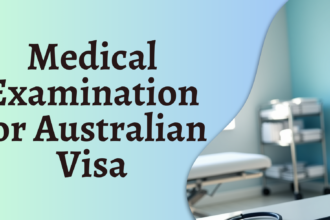Australia has long been a sought-after destination for individuals around the world due to its high quality of life, excellent healthcare system, and abundant work and educational opportunities. For Nigerians looking to visit, study, work, or migrate to Australia, one critical component of the visa application process is the medical examination. The Australian Department of Home Affairs requires all visa applicants to undergo a medical examination to ensure they meet health standards and do not pose a risk to public health or Australian healthcare systems.
This comprehensive guide will provide Nigerian applicants with detailed information on the Australian visa medical examination requirements. From understanding why it’s necessary to knowing the steps involved, how to prepare, and the associated costs, this article will provide all the essential details you need to navigate the process smoothly.
Overview of Australian Visa Medical Requirements
Australia’s immigration policy emphasizes ensuring that applicants do not place a burden on the country’s healthcare services. As part of this commitment, all visa applicants may need to undergo a health assessment before their application can be processed. The requirement for medical examinations is determined by the applicant’s age, the type of visa they are applying for, and whether they are considered to have health conditions that may require further scrutiny.
For Nigerian citizens, the medical examination process can be broken down into a few key components:
-
Medical Examination: A comprehensive physical examination by an approved panel physician.
-
Chest X-ray: A mandatory chest X-ray for applicants over 11 years of age to screen for tuberculosis.
-
Blood Tests: Blood tests may be required to screen for conditions such as HIV, hepatitis B and C, and syphilis.
Who Needs a Health Examination?
Health examinations are mandatory for applicants planning to stay in Australia for more than six months, as well as for certain visa categories. For Nigerians applying for visas, the most common categories requiring medical examinations are:
-
Temporary Work Visas: For those seeking temporary employment in Australia, a health assessment may be required depending on the nature of the work.
-
Permanent Residency Visas: Anyone applying for a permanent residency visa will need to undergo a health examination.
-
Visitor Visas: Visitors applying for extended stays or those coming from countries with a high incidence of tuberculosis may also be required to undergo a medical examination.
-
Student Visas: Applicants applying for long-term student visas may need to complete the medical examination.
If applicants have existing medical conditions, they may need to undergo more extensive health assessments to ensure they do not pose a significant risk to the public or the healthcare system.
Medical Examination Procedures
The medical examination process is relatively straightforward, but it is essential to follow the steps to avoid unnecessary delays in your visa application. Here’s what Nigerian applicants can expect during the process:
Step 1: Health Declaration and Appointment Booking
The first step is to complete a health declaration form provided by the Australian Department of Home Affairs. This form will ask for details about your medical history, including any past illnesses, surgeries, or ongoing conditions. It is crucial to be transparent when filling out this form, as any omissions or false statements can result in delays or even the rejection of your visa application.
Once the health declaration form is submitted, applicants will receive a Health Assessment Portal (HAP) ID. With this ID, applicants can then book an appointment with an approved panel physician. It is important to note that the medical examination must be done through an authorized clinic or doctor.
Step 2: Visit the Approved Medical Center
After scheduling your appointment, the next step is to visit an approved panel physician’s office. In Nigeria, the International Organization for Migration (IOM) operates Migration Health Assessment Centres (MHAC) in both Lagos and Abuja. During the medical examination, the panel physician will:
-
Conduct a general physical examination.
-
Check for any obvious health issues or conditions that may be a concern.
-
Take a chest X-ray if required (for individuals over the age of 11).
-
Collect blood and urine samples for necessary tests (e.g., HIV, tuberculosis, hepatitis).
The doctor may also require additional tests if they suspect you may have a condition that requires further evaluation.
Step 3: Submit the Results
Once the examination is complete, the results are sent directly to the Australian Department of Home Affairs. The department uses these results to evaluate whether the applicant meets the health standards required for their visa. It typically takes a few weeks for the department to process the results and inform you of their decision.
If additional tests are needed, this may delay the process. However, it is important to note that, in most cases, the results of the medical examination are one of the key factors in deciding the outcome of a visa application.
Costs and Payment
The cost of the medical examination can vary depending on the type of visa you are applying for and the medical center you visit. For Nigerian applicants, the typical costs are as follows:
-
Basic Medical Examination: Approximately AUD 400.
-
Chest X-ray: Around AUD 150.
-
Additional Tests (e.g., blood tests): Additional costs may apply, depending on the tests required.
Payments are made directly to the medical facility and are typically not covered by private health insurance. It is advisable to check the costs with the medical facility before booking an appointment to avoid any surprises.
Where to Go for the Medical Examination
In Nigeria, the IOM provides authorized medical facilities for Australian visa applicants. These are located in:
-
Lagos: No. 1 Isaac John Street, GRA Ikeja.
-
Abuja: No. 4 Buchanan Close, Wuse II.
You can contact these offices directly or visit the IOM website to book an appointment. It is essential to ensure that the medical center you choose is approved by the Australian government to avoid complications later in the process.
Health Conditions and Their Impact
Some health conditions may affect the outcome of your visa application. If you have a pre-existing condition, you may still be able to obtain a visa, but additional medical assessments may be required. Conditions that could potentially impact your visa application include:
-
Tuberculosis: A history of tuberculosis or a current infection may result in the need for treatment or further medical evaluation.
-
HIV and Hepatitis: Applicants with these conditions may need to provide additional documentation or undergo additional treatment before their visa application can proceed.
-
Mental Health Issues: While mental health conditions are not always disqualifying, applicants may be asked to provide additional documentation regarding their treatment.
It is important to disclose all health information honestly and promptly to avoid delays or complications in the processing of your visa.
Preparing for the Medical Examination
To ensure a smooth medical examination, here are a few tips to prepare:
-
Bring All Necessary Documents: This includes your passport, HAP ID, any medical records, and details of any medications you are currently taking.
-
Check for Vaccination Requirements: While vaccinations are not always required, it is a good idea to ensure your immunizations are up to date.
-
Be Honest About Your Health: Disclose any medical conditions during the health declaration to avoid complications later.
-
Arrive Early: Arriving early for your appointment ensures that there are no delays in the examination process.
Conclusion
Navigating the Australian visa medical examination requirements can be a bit overwhelming, but with proper preparation and understanding of the process, Nigerian applicants can significantly reduce the chances of delays or complications. The key to success lies in ensuring that you follow all the steps correctly, submit the necessary documentation, and comply with health requirements.
By maintaining transparency regarding your health history and adhering to the medical examination guidelines, you are more likely to meet the health standards necessary for a successful visa application. For Nigerians seeking to live, work, or study in Australia, the medical examination is a vital step in achieving your immigration goals. Always ensure you schedule your medical appointment with an authorized provider and keep track of all relevant deadlines and requirements.
Taking these steps will not only help you avoid unnecessary delays but also ensure that you meet the requirements to move forward with your Australian visa application.



